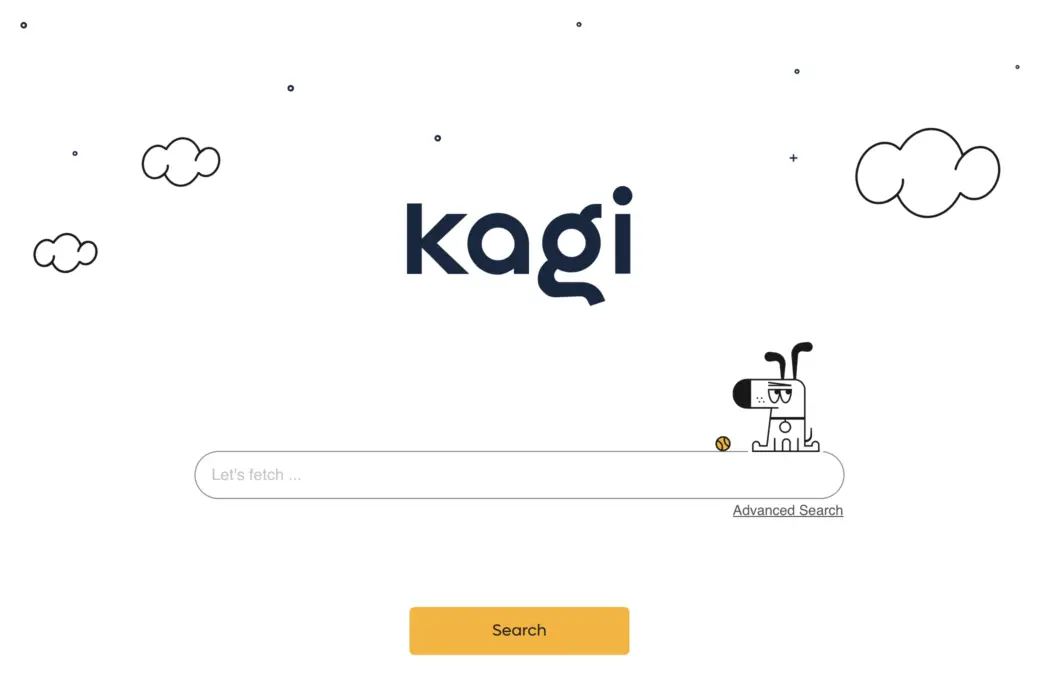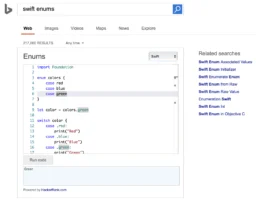Tonight I decided to give Kagi a try, after hearing John Gruber mention it a few times on Daring Fireball. I’ve used a mix of DuckDuckGo and Bing for over a decade now, and occasionally will still try Google in desperation1. What I’ve noticed is a decade-long trend – accelerating in the last year or two – of search quality declining. I’m apparently not the only one.
At first it was just Google that went to shit, but now even Bing & DuckDuckGo are increasingly filled with SEO spam, garbage results, and ads. Worst of all, they’re increasingly unwilling to address my actual queries, preferring instead to serve up uselessly generic results and insulting clickbait.
Is Kagi any better? Hard to say; I only just started playing with it. It looks promising at the outset, but only time will tell.
Kagi does have at least one incredibly non-novel yet unique feature: the ability to permanently customise the ranking of each website in your results. Personalised search done the right way.
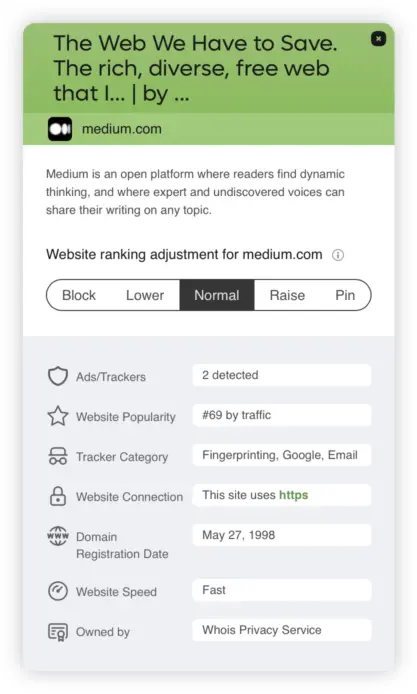
You can give a website a nudge up or down, or take it to the extreme by pinning or blocking the website entirely. This is what actually got me to sign up for Kagi. I can’t tell you how many times I’ve looked at Bing, DuckDuckGo, or Google search results and said “for fuck’s sake, why do you even allow this website in your index?”. Over and over again, the top page of results is clogged with those rip-off merchants that clone e.g. Wikipedia or StackOverflow, and just stuff them full of ads and trackers. I genuinely can’t fathom how these websites, clearly commercialising industrial-scale copyright infringement, can persist.
We’ll come back to this feature in a minute.
Kagi Search Stats
While playing with Kagi, I incidentally found their Search Stats. Which are interesting for several reasons – for a start, as I write they have just 19,468 “members” – which I take to mean paying customers – which seems crazy tiny even for a search engine which has essentially only been around for seven months, given they’ve received some high-profile evangelism (such as the aforementioned by John Gruber). At least they’re growing.
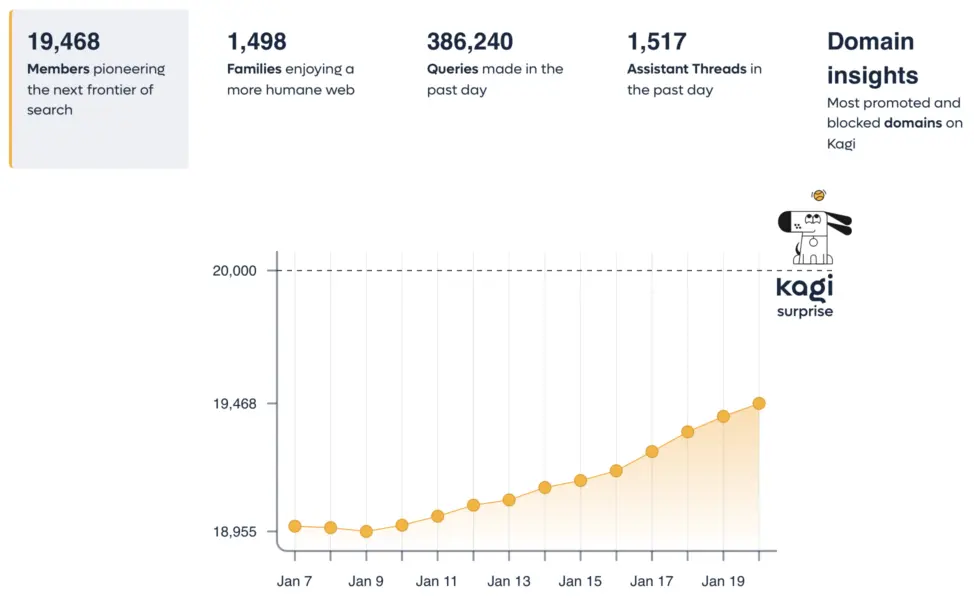
But perhaps the most interesting is what they call “Domain insights”, which is a polite way of saying “best & worst big websites” – at least, as expressed by Kagi’s 19,468 members. This is the summary of all those ranking customisations Kagi’s users have made. As such, I think it’s an interesting insight into what people consider good websites as opposed to popular.
On the positive (most-favoured) side, there’s not a lot of surprises. Wikipedia tops the list by a mile – specifically the English version of Wikipedia, suggesting Kagi might have a very U.S.-centric user base – followed by a variety developer-centric websites, with Reddit being really the only other exception. As one might expect, the early adopters of Kagi are computer geeks.
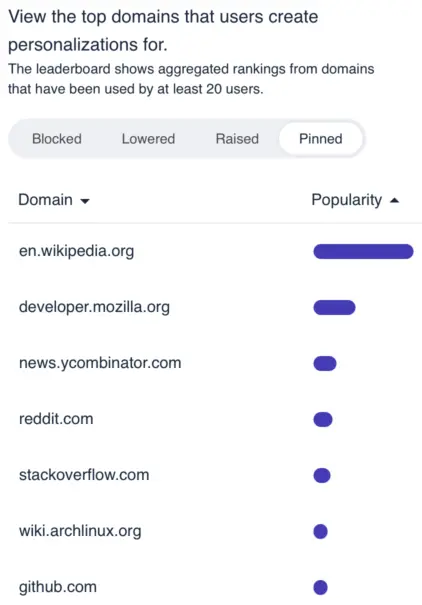
It’s the ‘negative’ side that’s most interesting. Remember that in order to get on these lists you have to actually be a major website, well known and a frequent-enough occurrence in search results that a large number of people have told you to bugger off. So it’s essentially revealing the sentiment towards the ‘popular’ websites.
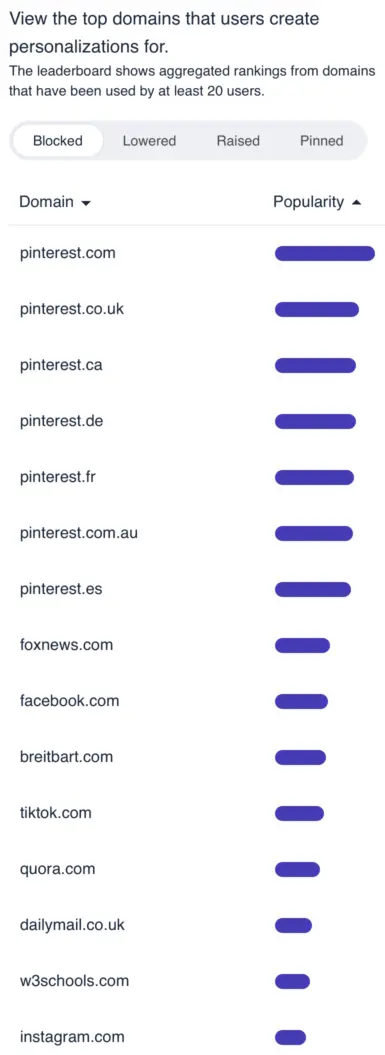
It surprised me to see Pinterest at the top. Not just the top position, but the top seven positions, accounting for their various geo-specific site variants.
I myself resent Pinterest’s existence because I find that the dominant search engines prioritise Pinterest over far superior matches, to an absurd degree. I can recall only one time, in my life, where I visited Pinterest and actually got any benefit out of it. One.
But, I didn’t realise so many others felt similarly.
The rest of the results are much less surprising to me. Fox News & Breitbart for their political nature (DailyMail’s presumably in the same bucket). Facebook because it’s a horrible turd on so many levels but most pertinently because it essentially can’t be viewed without being signed in2. Instagram apparently gets marginally less hate from the computer geek community, even though it falls into the same bucket as Facebook in that respect (and others).
I’m slightly surprised to see w3schools in the list, as though I’m aware it’s not “cool” to use it as a web developer, frankly I use it all the time because they have better summaries of key CSS features than Mozilla’s developer docs.
- When my primary search engine fails me. Google has a more extensive index than Bing / DuckDuckGo, so sometimes it’s the only one of the Big Three that can find a relatively niche or unloved page. ↩︎
- Incidentally, if your restaurant’s menu is only available on a Facebook page, congratulations, you will never count me amongst your customers. ↩︎
